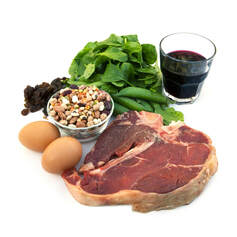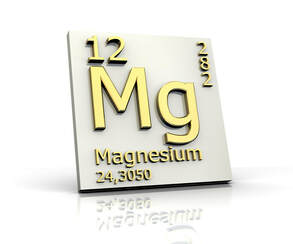|
When it comes to high altitude hiking, there are many supplements out there promising the world. From 'enhancing bioavailability of oxygen', to 'increasing lung capacity' to 'increased blood volume' - many of these supplements seem too good to be true. And in most cases, that is exactly the case. So before you fork out your hard earned money, you need to ask yourself 'Does it actually work?" This article will explore some of the few supplements that have been proven to work (and not just empty your wallet). Ginkgo BilobaGinkgo biloba is a tree native to China and has been used in traditional medicine for centuries. It has commonly been used for cognitive enhancement and it has a long history of being used to prevent altitude sickness. But looking at the evidence, it's ability to prevent altitude sickness has been often questioned. On one hand, there have been there have been numerous studies suggesting that Gingko is effective at preventing altitude sickness symptoms. Though not completely understood, it is theorised to do this through either:
While these conflicting results are confusing, it has been suggested that this can be explained through a number of shortcomings in these studies (such as dosage/quality of gingko extract, duration of supplementation before ascent). It also should be noted that there have been studies which have identified 'non responders' to Gingko Biloba. Meaning on an individual basis, it may or may not work for you. Conclusion: Looking at evidence on the whole, Gingko Biloba extract can be effective at reducing the symptoms of altitude sickness. It should be taken 1-5 days before ascent. However because of its unreliability and the potential of you being a 'non responder' it should not be relied upon solely as a preventative for altitude sickness. IronWhen we are at Altitude our iron requirements increase. Iron is essential for the acclimatisation process and if we do not have enough of it, the process will be hindered. This can directly effect the potential for altitude sickness. Unfortunately while at altitude, it can be difficult to reach these increased iron requirements. Reasons for this include a reduced appetite at altitude and a reduced availability of meat in remote conditions. To counter this, iron supplementation has been used by high altitude athletes and mountaineers for many years to aid the acclimatisation process. This is backed up with evidence which shows that iron supplementation showed a significant increase in haemoglobin production at altitude (particularly for those who were already low in iron). It should be noted that this is not appropriate for everyone. These studies specifically excluded people who already had 'overly high' iron levels, as excess iron stores in vital organs is associated with an increased risk of a number of conditions including cancer, liver disease and heart failure. So while iron supplementation can be an effective aid at altitude, it should always be guided by a doctor. * Read here for more details on why Iron is essential for altitude performance (and how to get more of it). Conclusion: Iron supplementation can be an effective aid to the acclimatisation process (and hence reduce the possibility of altitude sickness). However due to the dangers of overly high iron levels, self 'prescription' is not recommended and should always be guided by a doctor.
|
AuthorRowan is a personal trainer who specialises in training for hiking, trekkers and mountaineers for their bucket list adventures. Archives
July 2024
Categories
All
|
AboutSummit Strength is a personal training for hiking service created specifically to help hikers have the best chance of a safe, enjoyable and successful adventure.
|
Company |
Services |
|
|
© COPYRIGHT 2018. ALL RIGHTS RESERVED.
|
Website Design by My Personal Trainer Website
|






 RSS Feed
RSS Feed
